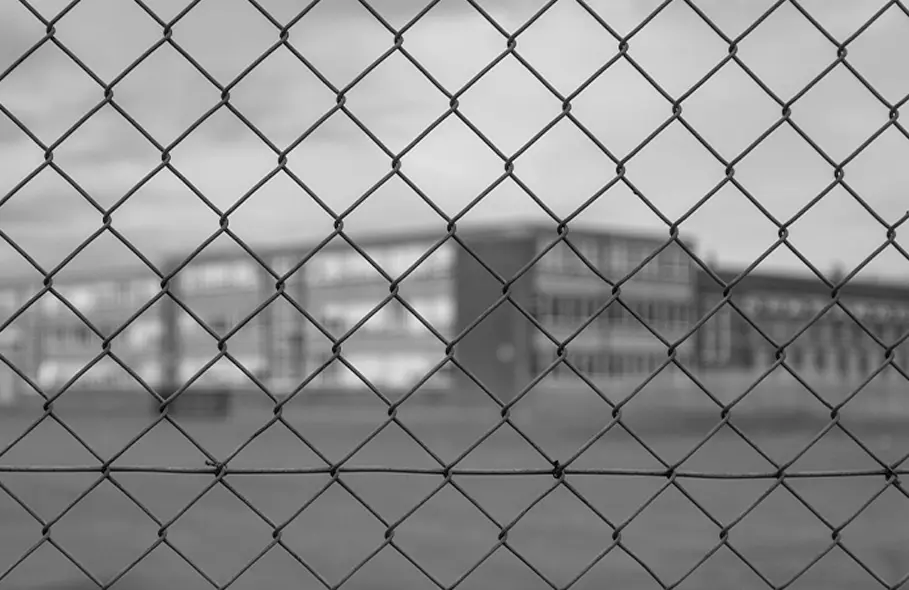PERSPECTIVE: School closures inflict harm on Black communities
by Asif Wilson for The Triibe / Sep 27, 2024

In 2012, I was a social studies and science teacher at May Community Academy, an elementary school in Chicago’s Austin neighborhood. It was the sixth year of what I thought would be my forever career at my forever school.
I loved being a teacher at May. Some of my fondest memories occurred there—the award-winning video my students produced about systematic violence in their community, the turf football field that I coached on installed to replace the Willis Wagons remnant of the school’s overcrowded past, or the countless times my students and I laughed together, cried together and learned together.
As Irene Robinson, a parent and education activist I’ve been working alongside for 15 years, eloquently puts it: Schools are the heartbeat of the community.
After learning that my school was slated to be closed, I did what my parents and my ancestors taught me: I fought back. I spoke at press conferences, organized with my parents and students, and even got arrested at City Hall as part of a final effort to save the 100 schools on the list released by Chicago Public Schools earlier that school year in 2012. Unfortunately, the efforts were not enough, and May closed its doors at the end of the 2012-2013 school year.
Many teachers left, families elected to move their children to other schools, and the community was left with yet another disinvestment in their neighborhood. One heartbeat in the Austin community began to slow its pace.
Currently, there is a school closings moratorium enacted by the Illinois General Assembly in place, but it’s set to expire on Jan. 15, 2025. This moratorium restricts the CPS Board of Education from “closing, consolidating, or phasing-out” any public school until an elected school board is in place on Jan. 1.
As the moratorium’s expiration draws closer, I and other Black families who remember the horrors of Chicago’s 20 years of school closings project worry that society has forgotten the harm school closures have bestowed upon working-class communities of color.
Between the years 2002 and 2018, Chicago closed over 200 public schools. Most of these school closures took place in Black working-class communities, largely against the wishes of parents, teachers, students, and community members. Transcripts from the school closing hearings reveal plea after plea to the board of education to not move against school closures, citing the central role schools play in community well-being.
Research shows that school closures have led to more rapid gentrification, inequities in school access, and failed to bring forth the false promises made by the previous city administration. And Chicago is not alone in these outcomes. Cities like Philadelphia and New Orleans have engaged in similar closure experiments and the results are no different.
To be clear, I don’t disagree that Chicago Public Schools is in a budgetary crisis, and I understand that some schools have suffered tremendous destabilization. However, there is 20 years of evidence that proves closing schools is not the answer.
Now is the time to remember the impacts of the past 20 years of school closures on communities in urban cities like Chicago and move to develop alternatives that involve impacted students like the ones I was fortunate enough to educate, teachers like me, and parents like Ms. Irene in dreaming up and actualizing more just and equitable futures for their education. Futures that make it possible for every child, regardless of income level, race, or geographic location, to have access to an equitable and just education without having to travel outside of their neighborhood.
Right now, I am working alongside Black parents, Black students, and Black educators to document the long legacy of resistance to school closures in Chicago. Through the documentation of oral, photo, and video histories/herstories/theirstories, we will create a vision for the future of Black education. Our early research findings indicate that Black families have wonderful ideas about the future of Black education, yet they feel that their ideas are often shunned. They are still holding onto the traumas of school closings, yet hopefully, that change is possible.
Let’s act now to prevent another 20 years of continued destruction, disinvestment and destabilization of Black communities and moving towards the design and construction of just public educational institutions in every neighborhood for every child.
Legislatively, the Illinois General Assembly should act now to extend the moratorium on school closings and we should continue to hold CPS’s Board of Education (elected or not) accountable to listen and respond to the educational dreams of teachers and families in ways that invest, not divest, in neighborhood schools.
Asif Wilson is an assistant professor of Curriculum & Instruction at the University of Illinois Urbana-Champaign and a Public Voices Fellow with the OpEd Project.